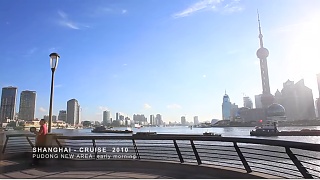Metro systems
The two largest metro systems in the world are in ShangHai and BeiJing. There are also metro systems in many other Chinese cities. These are all super modern, spacious, artistically appealing and easy to use for visitors with announcements in both Chinese and English, with signs both in Chinese and PinYin.
Check out our videos on various Chinese metro systems.
The Beijing metro system has over 600 miles of track and over 600 stations. It carries over 10 billion passengers annually, making it one of the busiest subway systems in the world. It operates one of the world's largest fleets of subway cars, with over 4,000 cars in service.
The Beijing metro is also one of the most technologically advanced subway systems in the world, with many of its trains and stations equipped with advanced features such as automated train control, platform screen doors, and real-time passenger information systems.
The Beijing metro is known for its distinctive architecture and design, with many stations featuring works of art, sculptures, and other design elements. It is also known for its efficient and fast service, with trains running at high frequencies and minimal delays.
The Beijing metro is also very affordable and accessible, with fares starting from as low as CNY3 (about $0.4 / £0.35) for a single journey with discounts for frequent users. It has also been made more convenient for tourists by allowing the use of contactless payment methods such as WeChat Pay, Alipay and UnionPay.
Taxis
In China, taxis are easy to find and very affordable, unlike in the West; they are widely used by nearly everyone. For example, Beijing has approximately 66,000 registered taxi vehicles operating in the city as of 2021. The standard taxi fare in Beijing is around ¥13 (or about $2 / £1.40) for the first 3 kilometers (about 1.8 miles) plus an additional ¥2.3 (about $0.35 / £0.25) for each additional kilometer. There can be higher tariffs for night time (after midnight).
High speed rail
China has built one of the most extensive high-speed rail networks in the world, which is known for its speed, efficiency, and connectivity. China has the world's largest high-speed rail network, with over 22,000 miles of track and over 350 stations. The high-speed rail network operates at speeds of up to 217 mph, making it one of the fastest in the world.
China's high-speed rail system carries over 3 billion passengers annually, making it the busiest high-speed rail networks in the world. China's high-speed rail system is also affordable and accessible, with fares starting from as low as CNY50 (about $7) for a single journey and discounts for frequent users.
China has also been exporting its high-speed rail technology and know-how to other countries such as Indonesia, Turkey, Russia and more.
Air travel
Air travel is an important part of China's transportation system, with several major airports and a rapidly growing number of passengers. Here are some facts about air travel in China:
China has over 220 commercial airports, making it the country with the second-largest number of airports in the world, behind the United States.
China's three major airports are Beijing Capital International Airport, Shanghai Pudong International Airport, and Guangzhou Baiyun International Airport. These three airports handle a large number of passengers annually, with Beijing Capital International Airport handling over 100 million passengers in 2020.
China's domestic air travel market is the second-largest in the world, behind the United States, with over 600 million passengers in 2020 and over 60 million international passengers.
China's air travel market has been expanding rapidly in recent years, with several new airports and routes being added.
China's major airlines, such as Air China, China Eastern Airlines, and China Southern Airlines, are among the largest in the world, and they operate a large fleet of modern aircraft. It is also becoming more affordable, with the increasing competition between airlines leading to lower fares.
China's air travel market is also becoming more convenient for travelers, with the increasing use of online booking and check-in, as well as the introduction of e-visas for some countries. It is also becoming more sustainable, with many airlines investing in more fuel-efficient aircraft and implementing more environmentally-friendly practices.
China's air travel market is a modern, efficient, and highly-used transportation system that connects many of the country's major cities and helps to keep the country moving. It is constantly evolving to match the country's needs and to make the passenger experience more pleasant, but also to reduce its impact on the environment.
 Get ready for China – transportation
Get ready for China – transportation


















![PinYin - English : pronunciation. ~ is used where there are two sounds in one syllable. Ou[ch] means use the first sound of the word `ouch`; same sound as ow[l]. *** Greetings Nǐ Hǎo - Hello / Hi (literally, you good?) : nee how Zài Jiàn - Goodbye / bye : z~eye jee~ann HuānYíng (GuāngLín) - Welcome ! (You`ll often hear this when enter a restaurant) DaJia Hao ! - Hello everybody ! *** Introductions Nǐ - you / your : nee Wǒ - I / my : woh What is your name? - Nǐ jiào shénme míngzì? : Nee j~ou[ch] shen mer ming zuh? My name is ... - Wǒ de míngzì shì ... : Woh der ming zuh sh ... *** XièXiè - : Thanks : shee~air shee~air (second is a little softer/quieter) XièXiè Nǐ ! - Thank you! : shee~air shee~air nee! *** DuìBuQǐ - Excuse me / sorry : der boo chee BúKèQì - No problem / you`re welcome : boo ker chee Mei guan xi - No problem / you`re welcome : may goo~ann shee Qǐng - Please : ching Mei / MeiHǎo - Beautiful : may / may how *** Interations DuWei - That`s right : doo~way (quickly, and often said twice) Yes and no have no direct translations in Chinese, but the following will be fine is answer to common questions, although they are more like `to be` and `not to be` if translated literally; however, these are real colloquial uses. Bú shì - no : boo shh Bú shì can also be used in reply to `Thank you !` with the meaning `you`re welcome` / `no need to say` / `it`s nothing` Shì de - yes : shh der E. g. LàJiāo ? - lah jee~ou[ch] (chillies ?) : Shì de / Bú shì *** Wǒ - I / me : woh Nǐ - You : nee Tā - He / she : tah *** Shopping and restaurants Wǒ Yào - I want / would like I would like one of these : Wǒ yào Yī ge Zhè ge (woh yow ee guh jay guh) *** ZhèGe - This : jay guh NàGe - That : nay guh *** Yī Ge - One (of) : ee guh Lian Ge - Two (of) : lee~ann guh (Two as a simple number is Er, pronounced `are`) Sān Ge - Three (of) : san guh *** Duō Shǎo Qián? - How much? (price) : doo~or sh~ow[l] chee~ann? Zhège duōshǎo qián? - How much is this? : jay guh Nàgè duōshǎo qián? - How much is that? : nay guh Tài Guì Le! - too expensive! : tie gwee ler! *** nǐhǎo ma? - How are you? : nee how mar ? Hǎo De - ok : how der Hěn Hǎo - Good : hen how Bù Hǎo - Not good : boo how *** ShénMe? - When? : shen mer NǎLi? - Where : nah lee? Nǎr - There (gesturing) : nah Qĭng wèn - Excuse me (before asking a stranger a question) : ching wen Qĭng wèn, weì shēng jiān (zài) nă lĭ? - Where is the restroom? : Ching wen. Way sheng jee~ann z~eye (nah) lee? Qĭng wèn, dìtiě zhàn (zài) nǎ lǐ? - Where is the metro station? : Ching wen, dee tee~air z~eye (nah) lee? You might hear zai nar in norther China (e. g. BeiJing) *** 小 Xiǎo - Small : sh~ow[l] 大 Dà - Big : dah Tai - Too : tie *** Bin De - Ice-cold : bin der Lian De - Cold : lee~ann der Rè de - Hot : rer der Rè chá - hot tea : rer char Bīng píjiǔ - Cold beer : bing pee jee~oh *** La - Spicy : lah Bu La - not spicy : boo lah Xiao La - a little spicy : shee~ow[l] lah Da La - Very spicy : dah lah Tai La! - too spicy! : tie lah! *** Noodles - Miàn : mee~ann Dumplings - JiǎoZi : jee~ow[l] zuh Rice - MiFàn / Fàn : mee fan / fan Eggs - JīDàn : jee dan Beef - NiúRòu 牛肉 : nee~you row Lamb - YángRòu 羊肉 : yang row Chicken - JīRòu 鸡肉 : jee row Pork - ZhūRòu 猪肉 : joo row Fish - YúRòu 鱼肉 : yoo row Tofu - DòuFu 豆腐 : doh foo (See BeijingBuzzz`s food cheat sheet for much more) (Wo) Chī bǎole! - (I`m) full! : Woh ch b~ou[ch] ler! (Ni) Chī bǎole ma? - (Are you) full? : (Nee) ch b~ou[ch] ler maa? Ma is appended to change a statement into a question. *** ZhōngGuó - China : jong goo~woh YīngGuó - England : ying goo~woh MěiGuó - America : may goo~woh ZhōngWén - Chinese nationality : jong ren YīngWén - English nationality : ying ren *** Hótel - Hotel FànDiàn - Hotel / Restaurant : fan dee~ann Wǒ Bù ZhīDào - I don`t know : woh boo juh~dow Tīng Bù Dǒng - I don`t understand : ting boo dong ZhèGe Duōshǎo Qián? / DuōShǎo Qián? - How much is this? : doo~or sh~ow[l} chee~ann? Tài guìle ! - Too expensive ! : tie-gwee lah ! Wo Yao ... - I would like ... : woh yow ... Wǒ Yào ZhèGe - I want this one : woh yow jay~guh *** 5 yuan (kwai) / 2 pieces (items) 5元 / 2个 or 5元 2个 8 折 (bā zhé), which directly translates as `8 discount`. This means that the discounted price is 80% of the original price (20% off). 人 Rén - Person : ren 5元 / 2人 - 5 yuan for 2 people *** For toilet doors / WCs : 男 - Man 女 - Woman *** BúShì - No : boo shh ShìDe - Yes : Shh der Hǎo de - Okay : how der MéiYǒu - none / out of stock : may~oh *** Wǒ ài ... - I love ... : woh eye ... - I love this! : woh eye jay-guh! Wǒ ài ZhōngGuó - I love China : woh eye jong goo~woh *** Hǎo Chī - Delicious (literally good eat) : how ch Bú Hǎo Chī - Not tasty : boo how ch One can think of `Bú` as meaning `not` *** Wǒ Bù LiǎoJiě - I don`t understand : woh boo lee~ow[l]~jee~air *** Chi - eat : ch Wǒ Xiǎng ... - I would like ... : woh shee~ang ... Wǒ Xiǎng Chī ... - I would like to eat ... : woh she~ang ch ... *** Directions Bei - North : bay Nan - South : nan Xi - West : shee Dong - East : dong *** DìTiě - Subway train : dee tee~air Dìtiě nali ma? - Where is the subway? : dee tee~air nah~lee ma Zhan - Train station : zahn Men - gate : men Yuan / kwai - rmb (currency) : yoo~ann / kw~eye (more common) Gong yuan - Park : gong yoo~ann *** KāFēi - Coffee : kah fay Chá - Tea : chah kěLè - Cola : ker ler PiJiou - Beer : pee jee~oh Shui - Water : shway Wo yao liang ge pijiou liande - I would like two cold beers : woh yow[l] lee~ann guh pee jee~oh lee~ann der *** Jia Yo! - Let`s go! / Go! (encouraging) : jee~ah yoh! Wǒ Bù Shuō Hànyǔ / ZhōngWén - I don`t speak Chinese (huh?!) Or simply Bù ZhōngWén : boo jong wen *** Numbers Numbers are easy (there are finger position numbers too, but that`s not so easy) : 1 - Yī : ee 2 - Èr : are 3 - Sān : san 4 - Sì : si (the sound is the first half of `soot`) (short sound) 5 - Wǔ : woo~oh 6 - Liù : lee~oo 7 - Qī : chee 8 - Bā : bah 9 - Jiǔ : jee~oo 10 - Shí : shhh (longer sound) Example of 11 - 99 : 73 - Qi Shí Sān (7x10) + 3 : chee shhh san (7 10 3) 70 - Qi Shí (7x10) : chee shhh (7 10) 100 - Bǎi : buy Example of 101 - 999 : 357 - Sān Bǎi Wǔ Shí Qī (3x100 + 5x10 + 7) : san buy woo~oh shhh chee (3 100 5 10 7) 300 - Sān Bǎi (3x100) : san buy (3 100) One small complication - two (of) - rather than the number two) is liǎng ge : lee~ang ger *** Cheers! - GānBēi! : gan bey! Simple Chinese language phrases to enhance your China trip (pinyin and pronunciation)](https://www.beijingbuzzz.com/choral3.jpg)





